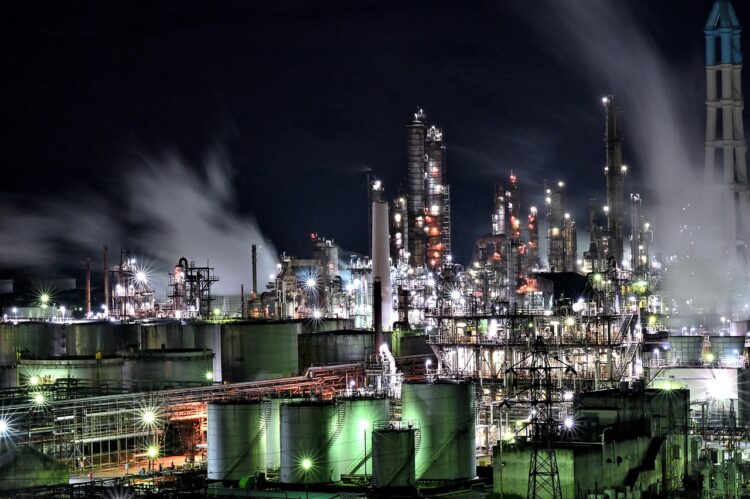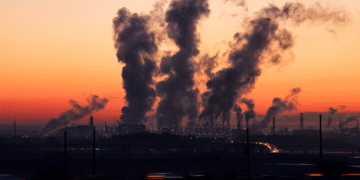Oceans in Peril: The Impact of Pollution and Acidification
Our oceans are immense bodies of water that cover over 70% of the Earth’s surface and play a vital role in supporting life on our planet. However, they are currently facing severe threats due to human activities, notably pollution and ocean acidification. These environmental challenges have profound effects on marine ecosystems and biodiversity, as well as on human communities that depend on these systems for livelihood.
Understanding Ocean Pollution
Ocean pollution is an escalating problem with wide-ranging impacts. Waste, particularly plastic debris, and chemicals from agricultural runoffs, industrial discharges, and untreated sewage are primary pollutants that impair oceanic health.
Types of Ocean Pollution
- Plastic Pollution: Millions of tons of plastic enter the seas annually, harming marine life that ingests or becomes entangled in it.
- Chemical Pollution: Harmful substances like pesticides, heavy metals, and hydrocarbons disrupt marine ecosystems and accumulate in the food chain.
- Nutrient Pollution: Excessive nutrients from agriculture runoff lead to algal blooms that deplete oxygen in water, creating dead zones where marine life cannot survive.
Effects on Marine Life and Human Health
Marine pollution not only devastates oceanic flora and fauna but also affects human health. Toxins accumulate in seafood, making it harmful for consumption. Coastal communities, often dependent on fishing, face economic challenges as fish populations dwindle due to polluted habitats.
Exploring Ocean Acidification
Ocean acidification, often referred to as ‘the other CO2 problem’, is equally catastrophic. This phenomenon occurs when the ocean absorbs carbon dioxide (CO2) from the atmosphere, leading to a decrease in water pH levels.
Causes of Ocean Acidification
Primarily, the burning of fossil fuels increases atmospheric CO2 levels. When the oceans absorb this CO2, chemical reactions reduce the seawater pH, compromising the calcification ability of organisms like corals and shellfish.
Impact on Coral Reefs and Shellfish
Acidic waters erode coral skeletons, endangering reef habitats. Reefs are critical as they provide food, coastal protection, and revenue through tourism and fishing. Similarly, shellfish such as oysters and clams struggle to maintain their shells in acidic conditions, impacting marine biodiversity and fisheries.
Global Consequences and Societal Impact
The repercussions of ocean pollution and acidification are global. Deteriorating marine environments lead not only to reduced biodiversity but also to weakened marine ecosystems, which are less able to provide the services upon which millions of people rely.
Economic Impacts
The economic fallout is severe in communities dependent on fishing and tourism. The decline in fish stocks and the destruction of natural attractions such as coral reefs profoundly affect these industries.
Cultural and Social Impacts
Many cultures have deep connections with the ocean. Traditional practices and livelihoods are put at risk, affecting social structures and the well-being of coastal communities.
Responding to the Crisis
Addressing the dual threats of ocean pollution and acidification requires coordinated global actions aimed at mitigating sources of pollution and reducing carbon emissions.
Preventive Measures and Sustainability Practices
- Regulating Emissions: Implementing stricter regulations on industrial emissions and waste management to reduce the influx of pollutants into our oceans.
- Enhancing Waste Management: Improving waste handling processes to keep plastics and other non-biodegradable materials out of the ocean.
- Fostering Renewable Energy: Promoting the use of renewable energy sources to lessen CO2 emissions and reduce ocean acidification.
Innovative Solutions and Community Involvement
Technological advancements, such as new biodegradable materials and better recycling technologies, can mitigate pollution effects. Moreover, education and community-based initiatives play crucial roles in preserving marine environments.
Final Thoughts
The state of our oceans reflects the pressing need for concerted efforts in environmental stewardship. By understanding the impacts of pollution and acidification, we can advocate for and implement changes that will ensure the health and sustainability of our planet’s vital marine ecosystems. Let’s commit to these changes not just for our own sake, but for the future of our blue planet.











